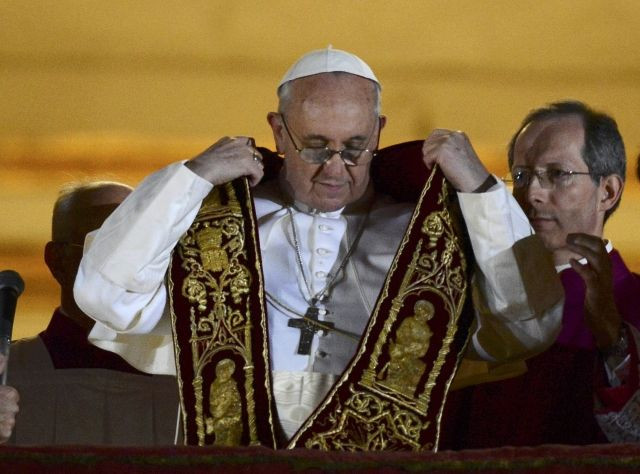
Pope Francis' apartment is much smaller and simpler than most recent pontiffs' abodes. The humble new pope has decided to live in the Domus Santa Marta, a hotel in Vatican City. Pope Francis has utilized the hotel's chapel, holding daily Mass at 7 a.m. every day since his election. FOX News Latino reports attendees have been everyone from hotel staff to Vatican gardeners.
Pope Francis has never been one for lavish surroundings. The former Jorge Cardinal Bergoglio of Argentina made news when it was revealed that instead of driving fine cars and living in large homes, Pope Francis reliably used mass transit to get around his native Buenos Aires.
For nearly 100 years, the leader of the Catholic Church has stayed in the papal palace, on the top floor of the Vatican. Pope Francis' apartment, though considered the papal suite of the hotel, is not nearly the size of his official quarters.
"You could fit 300 people in here," Pope Francis said of the papal palace.
A spokesman for Pope Francis said that the Catholic leader would continue to appear at the palace balcony to lead those gathered in St. Peter's Square below in Sunday prayer.
Last week, Pope Francis explained to journalists his reasons for his humility, saying he wants a "poor church for the poor", which hearkens back to his history of charity toward those in need. As Cardinal, he frequently visited the sick and even made trips to Africa to visit with AIDS victims. The pontiff explained that his papal namesake, St. Francis of Assisi represented exactly that expression: "poverty and peace."
Pope Francis said to his first Vatican audience that Jesus Christ was the true leader of the church and that the role of pope is secondary to that of the Lord. The soft-spoken leader's message has resonated with Catholics worldwide who are looking for a modest yet intellectual leader to face the challenges of the present and future of the church.
© 2025 Latin Times. All rights reserved. Do not reproduce without permission.




